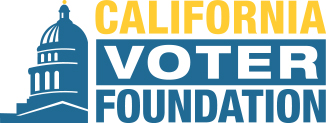Excepts:
The June 7 primary in Los Angeles County cost $82.2 million, requiring 12,000 election workers to administer an election in which 597 total candidates were seeking 155 offices with voting taking place by mail at more than 600 vote centers. All this in a county of 5.6 million registered voters.
But there was one missing ingredient — or at least not enough of it, based on the early numbers — in this simmering recipe of democracy: Voters.
Just more than 1 in 5 voters cast ballots in L.A. County, according to Tuesday stats rom the L.A. County Registrar-Recorder/County Clerk. And the turnout statewide, was at 26%.
Time to throw in the towel on the open primary?
No, says the system’s chief co-designer Steve Peace, the former San Diego-County assemblyman who designed California’s top-two primary, governing state and congressional elections.

